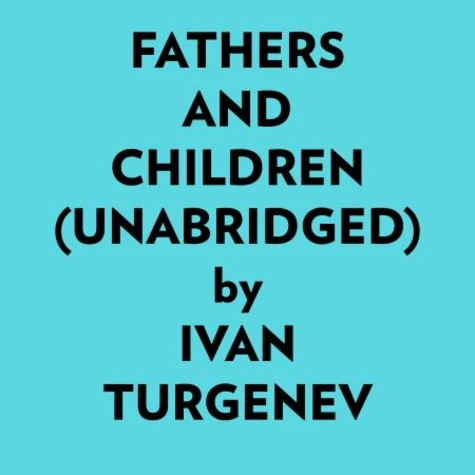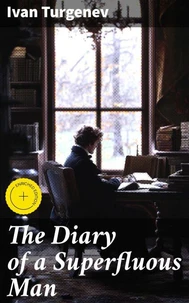Fathers And Children (Unabridged)
Par : ,Formats :
Disponible dans votre compte client Decitre ou Furet du Nord dès validation de votre commande. Le format MP3 est :
- Pour les liseuses autres que Vivlio, vous devez utiliser le logiciel Adobe Digital Edition. Non compatible avec la lecture sur les liseuses Kindle, Remarkable et Sony
 , qui est-ce ?
, qui est-ce ?Notre partenaire de plateforme de lecture numérique où vous retrouverez l'ensemble de vos ebooks gratuitement
Pour en savoir plus sur nos ebooks, consultez notre aide en ligne ici
- FormatMP3
- ISBN978-1-6693-7581-4
- EAN9781669375814
- Date de parution07/04/2022
- Protection num.pas de protection
- Taille704 Mo
- Infos supplémentairesaudio
- ÉditeurEverest Media LLC
Résumé
Please note: This audiobook has been created using AI voice.
Arkady, a university graduate, returns from St. Petersburg to his father's estate with his mentor Bazarov-a nihilist.
Fathers and Children (also known as Fathers and Sons) is a novel written in 1862 by Russian writer Ivan Turgenev and published in Moscow by The Russian Messenger.
The main theme of the novel is the conflict between two generations-the "fathers, " the liberal serf owners, and the "children, " nihilists who reject their authority and traditions.
Turgenev's novel also helped popularize the term "nihilism, " especially after the word's use by an influential Russian nihilist movement in the 1860s.
Despite being harshly criticized in Russia, the novel was very well received in Europe, being praised by influential novelists like Gustave Flaubert and Guy de Maupassant, making it the first Russian novel to gain recognition in the Western literary world.
Please note: This audiobook has been created using AI voice.
Arkady, a university graduate, returns from St. Petersburg to his father's estate with his mentor Bazarov-a nihilist.
Fathers and Children (also known as Fathers and Sons) is a novel written in 1862 by Russian writer Ivan Turgenev and published in Moscow by The Russian Messenger.
The main theme of the novel is the conflict between two generations-the "fathers, " the liberal serf owners, and the "children, " nihilists who reject their authority and traditions.
Turgenev's novel also helped popularize the term "nihilism, " especially after the word's use by an influential Russian nihilist movement in the 1860s.
Despite being harshly criticized in Russia, the novel was very well received in Europe, being praised by influential novelists like Gustave Flaubert and Guy de Maupassant, making it the first Russian novel to gain recognition in the Western literary world.





